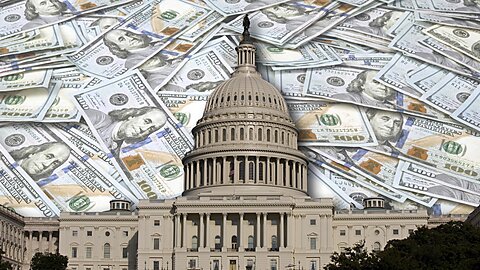Momentum is building in many states to limit and, in some cases, abolish property taxes. For libertarians and fiscal conservatives, this push presents a genuine dilemma. To explore this tension, I invited two leading voices, Vance Ginn and Jared Walczak, to make their cases for and against property taxes on my Substack, Liberty Taxed.
Property taxes are often described as the least bad among taxes. They are transparent, local, and relatively economically efficient. Yet, they also burden something central to liberty itself—the secure ownership of one’s home and land.
Ginn forcefully makes that moral case in his guest post, “The Case Against Property Taxes.”
Property is the foundation of liberty. It represents the right to the product of voluntary exchange, investment, and saving—not a privilege granted by government. To tax property again every year after it has been bought with after-tax income is to deny genuine ownership. Property taxes operate like an annual wealth tax or unrealized capital-gains tax, applied regardless of income or ability to pay.
Property taxes are an annual levy on a stock of wealth (or worse, as your mortgage is not deductible). This can be more burdensome than taxing an annual flow of income or spending because ability to pay may change even if the underlying asset and tax rate don’t. I find this argument compelling, though it has to be weighed against other features of the tax.
In “The Free Market Case for Property Taxes,” Walczak makes two competing arguments in support of property tax. First, property taxes support the federalist vision of local governance.
No one would mistake property taxes for a pure user fee, but the value of one’s property is a reasonable proxy for the benefits received from local services, like roads, law enforcement, emergency services, and schools.… Because property taxes are local and closely tied to the public services that shape property values, they allow residents to better judge whether tax levels match the value they place on local spending and to hold officials accountable when they do not. It’s also highly transparent: people know their property tax bill.
Second, property taxes distort economic incentives less than alternative revenue sources do.
Economic research consistently finds that property taxes are less economically harmful than other major taxes. A study of taxes across 21 OECD [Organisation for Economic Co-operation and Development] countries found that a 1 percentage point shift from income taxes to consumption taxes (like sales taxes) improves GDP [gross domestic product] by 0.74 percent, while shifting to property taxes increases GDP by 1.45 percent.… It is axiomatic that whatever you tax, you get less of. Taxing income means less income-producing labor and investment, for instance. But because land is an immobile asset, taxing property does less to distort market decisions than taxing income or even sales.
For this libertarian, the tiebreaker turns on the reform proposal’s particulars and how a reform might constrain government growth. Ginn argues that “overspending is the root cause of the property-tax crisis” and that property taxes, because they rise automatically with assessments and impose relatively low economic drag, can make it easier for local governments to grow beyond their proper limited functions. In this sense, the economic efficiency of the tax may fuel government expansion, making it less efficient than the static analysis predicts.
Walczak, however, makes an equally important point: For many localities, eliminating property taxes would mean eliminating their most stable, accountable, and least distortionary revenue source. Full repeal would require more reliance on state-level transfers or taxes that cause greater economic harm—outcomes libertarians should be wary of.
In the abstract, property taxes probably should be low on the list of taxes to cut, especially if the only goal is more efficient revenue collection. However, property tax cuts that tie relief to lasting spending cuts are worth pursuing when political momentum makes it possible. An efficient tax is still a tax worth cutting. Proposals that merely shift burdens to less visible, more economically damaging taxes and centralize decisionmaking at higher levels of government are not worthwhile.
Property taxes can be compatible with limited government but only if they operate alongside firm spending constraints, not as an easy engine for state expansion.


